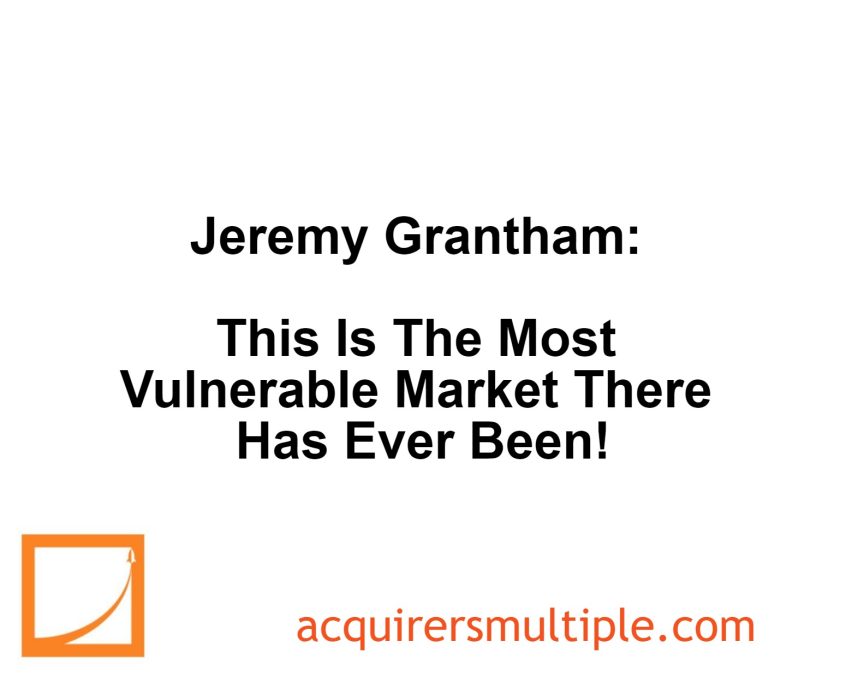During his recent interview with The Investor’s Podcast, Jeremy Grantham discusses the dangers of market bubbles, highlighting Japan’s 1989 bubble where the market traded at 65 times earnings, far beyond its historical norm.
He emphasizes that high price-to-earnings (P/E) ratios often predict severe downturns rather than prosperity, citing Japan’s lost decades after its market peak, the 2000 tech bubble, and the 2008 financial crisis.
Grantham warns that today’s market, with P/E levels even higher than before past crises, is highly vulnerable. He urges caution, noting that markets often feel most optimistic right before major crashes, leaving investors unprepared for the worst.
Here’s an excerpt from the interview:
So you fast forward to Japan, which is, in a way, the mother and father of all bubbles. Japanese market had never sold over 25 times earnings until it did in 87.
By 89, it was put to us that it was 65 times earnings. As far as we could tell, the Japanese market was 65 times trading earnings, never having sold above 25. And this is what should put the fear of God in anyone trying to time the market. This had gone up 150 percent more than it ever had in history.
What did it predict? From the day it hit its peak in late 89, you had a lost decade, arguably a lost 20 years. The Japanese growth went from sensational to miserable. The Japanese market for eight minutes sold at a larger value than the U.S. market. For an economy a third as big, it was incredible. And again, we had a sensational P.E., not predicting good times, but predicting the worst times that you could possibly have wished for Japan for the next 20 years. If you think about the great financial crash, it wasn’t the highest P.E. in history, but it was pretty darned high. The other day in 08, in early 08. And again, from a very high level, third only to 1929 and 2000 tech bubble.
Instead of predicting good times, it predicted the worst financial crisis in modern history. Which nearly brought the entire developed world to its knees and needed the most sensational bailouts and injection of liquidity, et cetera, to save our bacon. Incredible. So, if you look at the three great events or three of the four great events of the 20th century, you have to say, absolutely spectacularly wrong.
Peak multiples projecting the worst periods of our history. Well, I often quote Hussman. I’ve actually never spoken to him, but he produces very good data. And it’s free, which I always like. And the model that he uses that has the highest predictive value, measuring the value of the market, is slightly higher today than it was at its two previous peaks, 1929 and 2021 December, just before the fairly decent decline of 2022.
And now we’re slightly higher. This is on the most predictive measure of value that he has produced and he’s worked at that. As far as one can tell. Constantly for 30 years this is the most vulnerable market there has ever been and given the incredible record of the past that the highest multiples do not predict good times which you learn at business school but have historically predicted the worst times.
It should give you cause for some concern and some caution. And of course, the market does not feel concerned or cautious. It didn’t in 1929. It didn’t in Japan in 89. It didn’t in the U.S. before the housing bust of 07-08. That’s the way the market is. So, dear listener, get used to it. You will not be warned.
The very best of times, it will feel like the highest possible pricing, the highest possible PEs will be followed, not just by tough times, but some of the worst times that occur. That’s the historical precedent.
You can watch the entire interview here:
For all the latest news and podcasts, join our free newsletter here.
Don’t forget to check out our FREE Large Cap 1000 – Stock Screener, here at The Acquirer’s Multiple:



